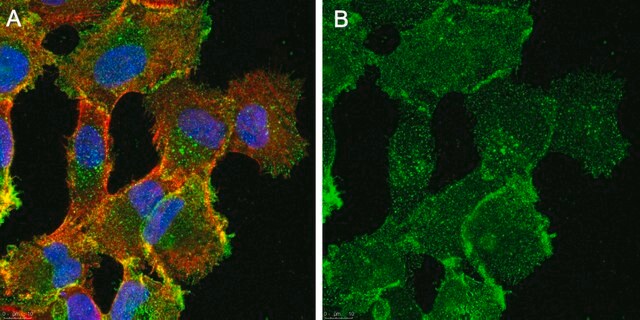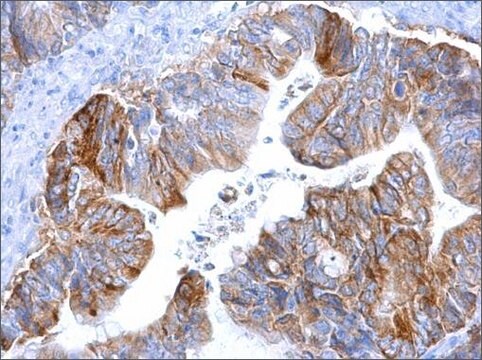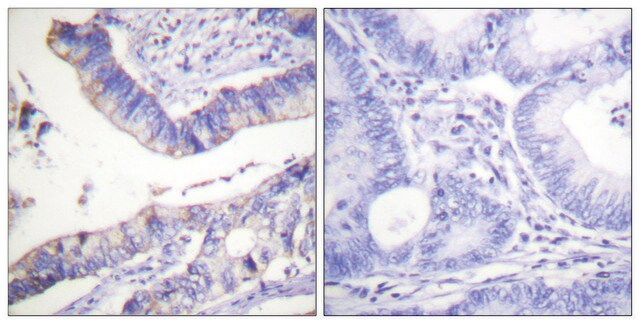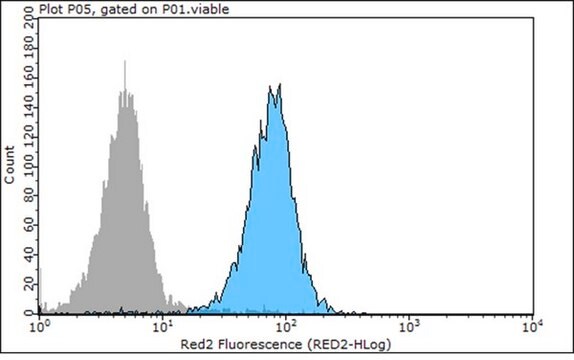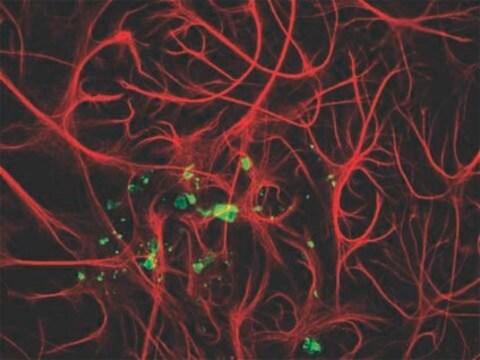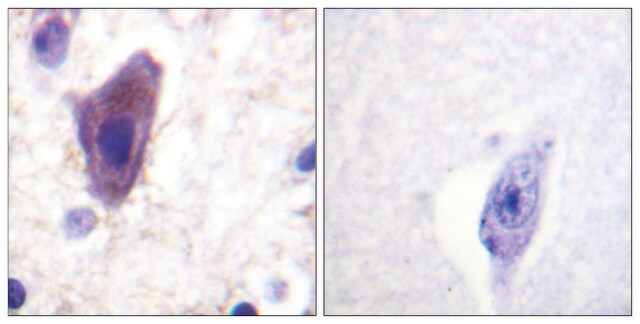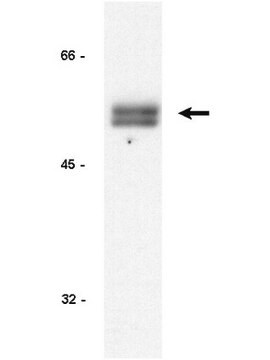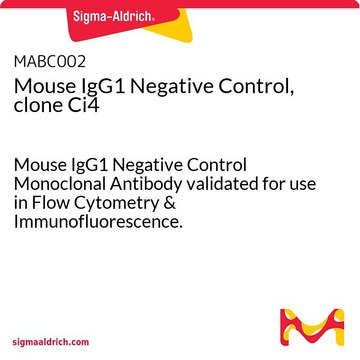SAB4700520
Monoclonal Anti-CD71 antibody produced in mouse
clone MEM-189, purified immunoglobulin, buffered aqueous solution
Sinônimo(s):
Anti-TFRC, Anti-Transferrin Receptor
Faça loginpara ver os preços organizacionais e de contrato
About This Item
Código UNSPSC:
12352203
NACRES:
NA.41
Produtos recomendados
fonte biológica
mouse
Nível de qualidade
conjugado
unconjugated
forma do anticorpo
purified immunoglobulin
tipo de produto de anticorpo
primary antibodies
clone
MEM-189, monoclonal
Formulário
buffered aqueous solution
reatividade de espécies
human
concentração
1 mg/mL
técnica(s)
flow cytometry: suitable
Isotipo
IgG1
nº de adesão NCBI
nº de adesão UniProt
Condições de expedição
wet ice
temperatura de armazenamento
2-8°C
modificação pós-traducional do alvo
unmodified
Informações sobre genes
human ... TFRC(7037)
Categorias relacionadas
Descrição geral
Cluster of differentiation 71 (CD71), also known as transferrin receptor, is encoded by the gene mapped to human chromosome 3q29. CD71 is present on cells with high proliferation.
The antibody MEM-189 reacts with CD71 antigen (transferrin receptor), a 95 kDa type II homodimeric transmembrane glycoprotein expressed on activated B and lymphocytes, macrophages and erythroid precursors; it is lost on resting blood leukocytes.
Imunogênio
KG1 human acute myelogenous leukaemia cell line
Aplicação
The reagent is designed for Flow Cytometry analysis. Suggested working dilution for Flow Cytometry is 2 μg/mL of sample. Indicated dilution is recommended starting point for use of this product. Working concentrations should be determined by the investigator.
Ações bioquímicas/fisiológicas
Cluster of differentiation 71 (CD71) functions as an iron regulatory protein. Overexpression of the gene has been associated with the development of various types of cancers, including cholangiocarcinoma (CCA). Thus, CD71 protein is considered as a potential therapeutic target for CCA and iron overload. The encoded protein facilitates mitochondrial respiration and reactive oxygen species (ROS) production in human pancreatic ductal adenocarcinoma (PDAC) cells, which is essential for their tumorigenic growth. Thus, aberrant expression of CD71 might also lead to the development of pancreatic cancer.
Características e benefícios
Evaluate our antibodies with complete peace of mind. If the antibody does not perform in your application, we will issue a full credit or replacement antibody. Learn more.
forma física
Solution in Tris buffered saline, pH 8.0, with 15 mM sodium azide.
Exoneração de responsabilidade
Unless otherwise stated in our catalog or other company documentation accompanying the product(s), our products are intended for research use only and are not to be used for any other purpose, which includes but is not limited to, unauthorized commercial uses, in vitro diagnostic uses, ex vivo or in vivo therapeutic uses or any type of consumption or application to humans or animals.
Não está encontrando o produto certo?
Experimente o nosso Ferramenta de seleção de produtos.
Código de classe de armazenamento
12 - Non Combustible Liquids
Classe de risco de água (WGK)
nwg
Ponto de fulgor (°F)
Not applicable
Ponto de fulgor (°C)
Not applicable
Escolha uma das versões mais recentes:
Já possui este produto?
Encontre a documentação dos produtos que você adquiriu recentemente na biblioteca de documentos.
Upregulation of transferrin receptor-1 induces cholangiocarcinoma progression via induction of labile iron pool
Jamnongkan W
Tumour Biology : the Journal of the International Society For Oncodevelopmental Biology and Medicine, 39 (2017)
NotI linking/jumping clones of human chromosome 3: mapping of the TFRC, RAB7 and HAUSP genes to regions rearranged in leukemia and deleted in solid tumors.
Kashuba VI
Febs Letters, 419, 181-185 (1997)
Transferrin receptor regulates pancreatic cancer growth by modulating mitochondrial respiration and ROS generation.
Jeong SM
Biochemical and Biophysical Research Communications, 471, 373-379 (2016)
Transferrin receptor (CD71) is a marker of poor prognosis in breast cancer and can predict response to tamoxifen
Habashy HO
Breast Cancer Research and Treatment, 119, 283-293 (2010)
Richard C A Sainson et al.
Cancer immunology research, 8(12), 1568-1582 (2020-10-02)
The immunosuppressive tumor microenvironment constitutes a significant hurdle to immune checkpoint inhibitor responses. Both soluble factors and specialized immune cells, such as regulatory T cells (Treg), are key components of active intratumoral immunosuppression. Inducible costimulatory receptor (ICOS) can be highly
Global Trade Item Number
| SKU | GTIN |
|---|---|
| SAB4700520-100UG | 4061832715605 |
Nossa equipe de cientistas tem experiência em todas as áreas de pesquisa, incluindo Life Sciences, ciência de materiais, síntese química, cromatografia, química analítica e muitas outras.
Entre em contato com a assistência técnica
